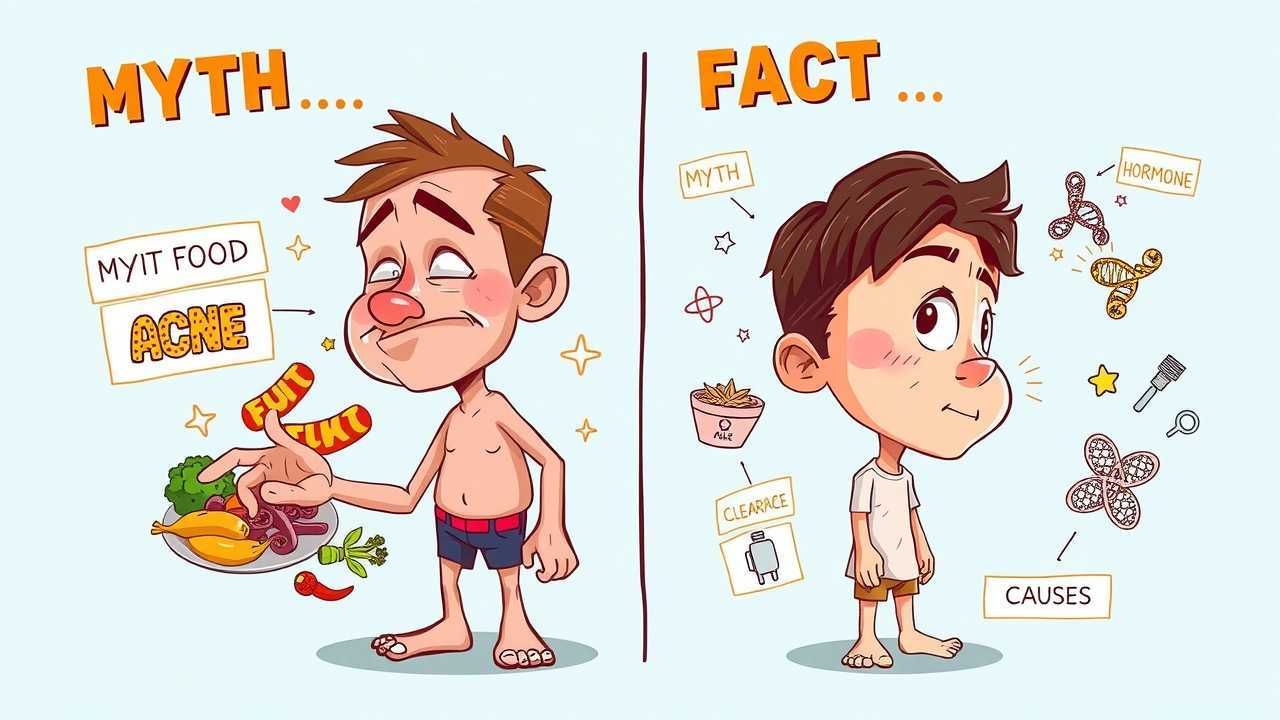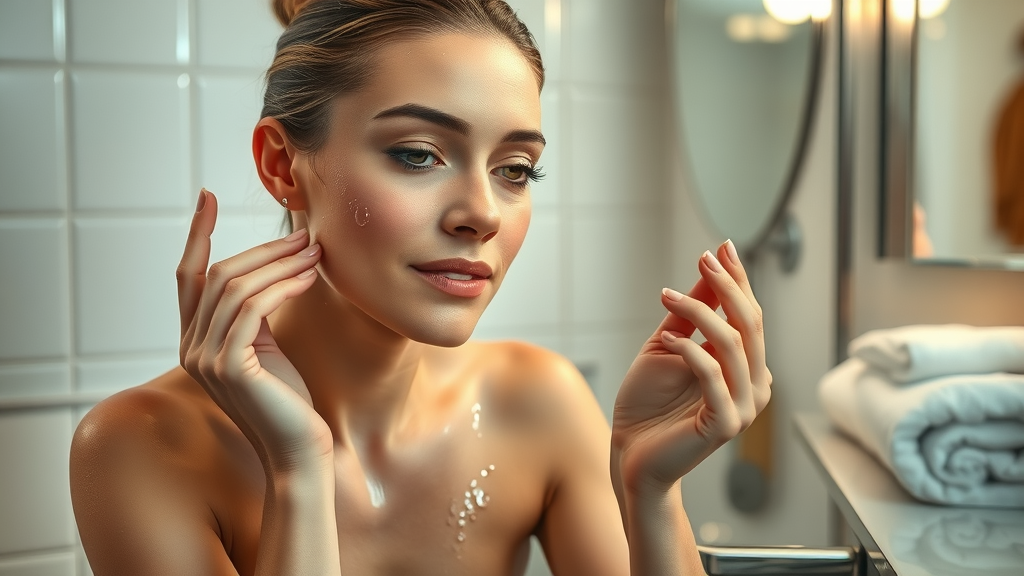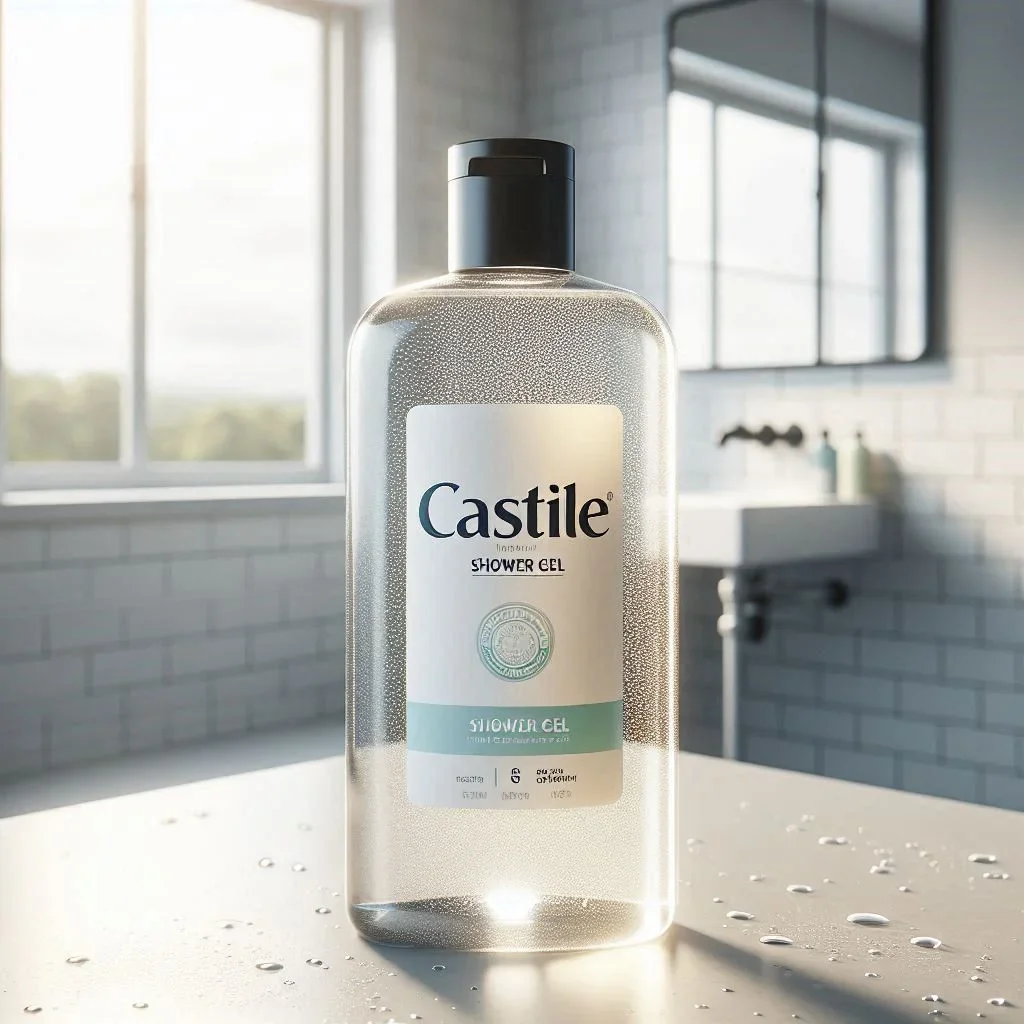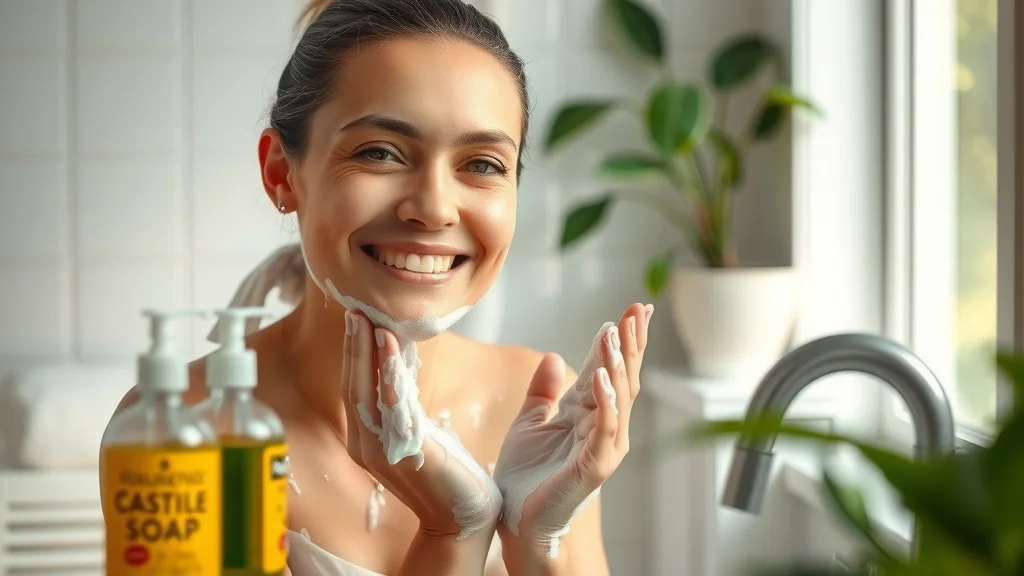Did you know that research debunks the common belief linking diet directly to acne? Unravel myths of acne and understand what truly impacts your skin. Discover the science that changes how you tackle breakouts and gain clearer, healthier skin with facts, not fads.

Debunking the Diet and Acne Myth: How Food Really Impacts Your Skin
For decades, many have blamed pizza, chocolate, and greasy foods for those frustrating flare-ups, but the myths of acne have often outpaced science. Today, major dermatological studies show that no single food directly causes acne for everyone. In truth, your breakouts are driven by a complex mix of genetics, hormones, and how your skin reacts to its environment—much more than what’s on your plate.
The acne myth that diet makes acne worse originates from early, poorly controlled studies and anecdotal stories rather than solid scientific evidence. More recent, large-scale research is overturning common acne myths, revealing that while diet can play a role in some individuals (particularly with high-glycemic foods or dairy), there is no universal “acne-causing” diet. The path to clearer skin begins with understanding your unique skin type and addressing real causes—not falling for food fads or old wives’ tales.

"Did you know that research debunks the common belief linking diet directly to acne? Unravel myths of acne and understand what truly impacts your skin. Discover the science that changes how you tackle breakouts and gain clearer, healthier skin with facts, not fads."
Understanding the Most Common Myths of Acne
The world of acne advice is filled with myths and misconceptions. From believing acne is a result of eating too much chocolate to thinking that scrubbing your face will prevent pimples, these common myths not only confuse but can also stop you from finding real solutions. Among the top acne myths are ideas that diet, poor hygiene, sun exposure, or consuming greasy foods make acne worse. However, research shows that these factors are not the main culprits behind breakouts.
In reality, acne is caused by multiple factors such as hormonal changes, genetics, and certain medications, which play a more significant role than diet. Focusing solely on acne myths can cause you to overlook the essential steps needed to effectively treat acne and achieve clearer skin. Let’s take a closer look at the real facts and see how science separates truth from fiction in the fight against acne.

Exploring Popular Acne Myths: Fact vs. Fiction
Diet: Eating chocolate or greasy foods will make acne worse.
Hygiene: Not washing your face enough causes acne.
Sun Exposure: Tanning clears up acne.
Greasy Foods: Oily snacks go straight to your pores.
These common acne myths persist, despite mounting evidence that shows acne is much more about how your skin cells and hair follicles function, rather than what you eat or how often you scrub your face.
The Science Behind Acne: What Actually Makes Acne Worse?
Let’s set the record straight: acne is caused primarily by hormonal fluctuations, genetics, excess sebum production, inflammation, and clogged hair follicles due to dead skin cells. While external elements like skincare products and high-glycemic diets may have some influence, their effects pale in comparison to the internal triggers at play. Understanding these mechanisms is crucial for moving beyond acne myths and adopting effective strategies to treat acne.
Multiple scientific studies, including reviews from the American Academy of Dermatology, highlight that hormones (especially during puberty or stress) and genetic predisposition have a far greater impact than anything on your dinner plate. Knowing the science means you can stop blaming yourself for eating the wrong foods and start focusing on evidence-based care that makes a real difference.
While understanding the science behind acne is crucial, it's equally important to protect your skin from other environmental factors that can exacerbate breakouts. For instance, learning how to shield your skin from UV rays during air travel can help minimize irritation and support your journey to clearer skin.
"It’s a myth that greasy foods cause acne breakouts, unless the grease gets on your fingers which then touches your face.” - Dr. Joshua Zeichner, board‐certified dermatologist
Does Diet Really Make Acne Worse? A Scientific Review
So, does what you eat make acne worse? The answer is nuanced. According to numerous controlled trials and published meta-analyses, there’s no clear, consistent link between specific foods and acne for the majority of people. Some individuals may notice breakouts after consuming dairy or high-sugar foods, but this isn’t universal—most people’s skin and make up responds differently. The real triggers for worsening acne tend to be hormonal changes, increased sebum production, and genetic factors, not your diet.
That being said, certain diets high in sugar and dairy products can potentially exacerbate acne in those already prone to breakouts. However, eliminating chocolate, pizza, or fried food is not guaranteed to prevent acne and may unnecessarily restrict your diet without improving your skin. For most, focusing on a balanced lifestyle and a good skin care routine will do much more to prevent adult acne than any dietary change.
Diet-Related Triggers |
Non-Dietary (Proven) Causes |
|---|---|
High-glycemic foods (sugar, white bread) |
Hormonal changes (puberty, menstruation) |

Hormones, Genetics, and Other Key Factors That Make Acne Worse
When it comes to the real reasons behind pimples, hormones and genetics lead the charge. During puberty, the body ramps up production of androgens which stimulate oil glands, setting the stage for acne. Family history plays a massive role—a genetic predisposition means even the best skin care may not fully prevent breakouts. Stress can also trigger hormone surges, worsening acne regardless of what you eat.
Additionally, anything that increases the chance of hair follicles and pores getting clogged (like using comedogenic makeup or over-exfoliating) can intensify breakouts. Focusing on these facts, and not diet myths, is what allows for tailored, more successful acne care routines.

Acne Myth vs. Reality: 4 Pillars of Treating and Preventing Acne
Science reveals that managing and preventing acne effectively requires a holistic, evidence-driven care routine. Forget what you’ve heard about fad diets or miracle washes. The key pillars for tackling acne are medical treatment, personalized skin care routines, lifestyle modifications, and when needed, professional support from dermatologists. By focusing on these four areas, you build a strong defense against both common acne myths and breakouts themselves.
Adopt these core principles for clearer skin and you’ll go beyond the surface, addressing the root causes of acne for real, lasting results.
Medical Treatment: Use evidence-based medicines like benzoyl peroxide, salicylic acid, or prescribed oral medications.
Skin Care Routine: Gentle cleansing, hydration, and non-comedogenic products matter most.
Lifestyle: Manage stress, get enough sleep, and avoid picking or popping pimples.
Professional Support: Consult dermatologists for stubborn or severe cases to create your personalized plan.
How to Create a Clearer Skin Care Routine: Tips for Treating Acne
Creating an effective care routine for acne involves more than just rinsing your face; it requires targeted treatments and gentle cleansing. Instead, start with a gentle cleanser that removes excess oil and dead skin cells without over-drying. Next, use targeted treatments like benzoyl peroxide or salicylic acid—ingredients proven to treat acne by unclogging pores and fighting bacteria. Always moisturize, even if your skin feels oily; the right hydrator keeps your skin barrier strong and can actually reduce oiliness and irritation.
“Picking, pulling, squeezing, scratching… none of them help,” says Dr. Lain. “All they can do is lead to more problems and possibly worsen your acne.”
- Dr. Ted Lain, board‐certified dermatologist
For certain skin types, it may be necessary to avoid harsh scrubs, abrasive towels, and fragrance-heavy products that can worsen acne or trigger more breakouts. Don’t forget to apply sunscreen suited for acne-prone skin to shield against UV damage—damage that can worsen symptoms and increase the risk of skin cancer. The bottom line: A science-backed, patient approach outperforms trendy hacks every time.

When Should You Seek Professional Help to Treat Acne?
If acne persists despite your best efforts at home or worsens to involve pain, scarring, or emotional distress, it’s time to call in the pros. Board-certified dermatologists can offer advanced treatments and help rule out underlying health issues. Persistent or cystic acne might signal hormonal imbalances, chronic inflammation, or rare skin conditions needing expert attention.
Early intervention can also prevent long-term scarring and restore your confidence. Remember, seeking help is never a sign of failure—it’s an empowering, science-driven step toward clearer skin.
"Clearer skin begins with understanding the true causes and debunking misleading acne myths."
Busting More Acne Myths: Hygiene, Stress, and Makeup
Other myths of acne insist that dirty skin, stress, or cosmetics are to blame, leading many to wash their face excessively or avoid makeup altogether. Let’s break down what the evidence really shows.
While keeping your skin clean is important, washing your face too often—or with harsh products—can strip away protective oils and actually make acne worse. Similarly, everyday stress and makeup can sometimes aggravate breakouts, especially if you use comedogenic (pore-clogging) cosmetics, but simply being stressed or wearing makeup isn’t the main cause.
Does Poor Hygiene Cause Acne? Debunking the Myth
Contrary to the popular belief that acne is linked to being “dirty,” most breakouts are not caused by poor hygiene. In fact, over-washing can irritate the skin and disrupt its natural barrier, making acne worse. Focus on gentle cleansing—twice daily with a mild cleanser—to clear away oil, sweat, and dead skin without triggering more inflammation.
The truth is, while proper hygiene can help reduce excess oil and bacteria, no amount of scrubbing will eliminate pimples if hormones and genetics are at play. The best skin care is consistent, gentle, and tailored for your needs.
Can Stress and Makeup Actually Make Acne Worse?
Stress triggers an increase in cortisol, a hormone that can worsen acne for some. While nobody can avoid stress completely, practicing relaxation techniques and maintaining a balanced lifestyle can help keep your skin in check. When it comes to makeup, choose products labeled “non-comedogenic” or “oil-free” to minimize the risk of clogging pores.
Remember: Makeup itself doesn’t cause acne, but poor removal habits, heavy formulas, and not cleaning brushes regularly can make it worse. The best way forward to manage acne is clear—choose non-comedogenic products, cleanse gently, and avoid stress to prevent acne worse flare-ups.
Toothpaste as an acne remedy: Can irritate and worsen breakouts.
Tanning beds: Do not clear acne and increase your risk of skin cancer.
Popping pimples: Increases scarring, infection risk, and can make acne worse.
Myths of Acne Across Cultures: Racial Differences and Global Perspectives
Acne affects people of all ages and backgrounds, but myths of acne can vary dramatically around the world. Some cultures attribute acne to “bad blood,” certain foods, or even environmental spirits, leading to unique remedies and beliefs. Modern science, however, has shown that while genetics and skin types do differ, the causes and solutions for acne remain largely consistent globally.
Understanding how racial differences can influence acne presentation and treatment helps debunk global misconceptions and supports more inclusive, effective care for everyone.

Is Acne Really Less Common in Certain Races? What the Research Shows
Recent research highlights how genetics influence the prevalence and severity of acne among different races and regions. For instance, studies show that East Asian populations often have less severe acne than Caucasian or African American populations due to differences in oil gland function and skin structure.
However, acne is still widespread globally—it's more about how it manifests and less about whether it exists. With a better understanding of racial and cultural factors, dermatologists can tailor treatments and dispel more acne myths that unfairly target certain groups.
Race/Region |
Acne Incidence (per 1,000 people) |
|---|---|
Caucasian (Western Europe/USA) |
600–850 |
African American |
500–800 |
East Asian (Japan, Korea, China) |
350–500 |
South Asian (India, Pakistan) |
400–700 |
Middle Eastern |
500–750 |
Cross-Cultural Acne Myths and Traditional Remedies
Around the globe, family traditions and folk remedies abound. From turmeric masks in India to herbal pastes in Africa and clay treatments in South America, many cultural practices aim to provide relief for acne. While some traditional treatments may offer mild benefits (hydration, anti-inflammatory action), others risk irritating the skin or worsening acne—especially if not matched to the correct skin type.
The best approach: Combine centuries-old wisdom with modern, evidence-based skincare for results you can depend on, regardless of your background.

Leveraging Scientific Truths: Building an Evidence-Based Acne Care Routine
To achieve genuinely clearer skin, it’s time to trade myths of acne for scientific truths. An effective acne care routine is built on evidence, not hearsay. Use this checklist to see if your daily habits meet the latest dermatological standards:
Cleanse with a gentle, non-stripping formula—twice daily is enough.
Apply proven treatments: benzoyl peroxide, salicylic acid, or retinoids as advised.
Moisturize using non-comedogenic (won’t clog pores) products every day.
Protect your skin from the sun with a broad-spectrum, non-oily sunscreen.
Don’t pick or pop pimples—this can worsen acne and lead to scarring.
Visit a dermatologist for persistent or severe acne and before starting new medications.
"Science empowers you to see past acne myths and choose treatments that truly work for your skin."
People Also Ask: The Internet’s Most Pressing Questions About the Myths of Acne
What is the #1 cause of acne?
Unpacking the leading causes of acne—and why the answer isn’t your diet.
The #1 cause of acne is the clogging of hair follicles with dead skin cells and oil, primarily triggered by hormones and genetics rather than diet. Contrary to acne myths, diet plays a much smaller role for most people. Factors like puberty, stress, or family history influence sebum production and inflammation, which in turn can make acne worse. Evidence shows that restoring balance to your skin care routine and, if needed, using dermatologist-prescribed treatments is key to successful management—not eliminating certain foods from your diet.
Which race has the least acne?
Examining research on racial differences in acne prevalence.
Epidemiological studies suggest that East Asian populations have the lowest rates of acne compared to other groups, but acne can affect anyone, regardless of race. The main reasons come down to variations in oil gland size, genetics, and environmental exposure. These findings remind us that while some populations are less susceptible, people of all ages and backgrounds can experience acne, making inclusive and evidence-based care essential.
What is acne trying to tell you?
Understanding acne as a signal of underlying skin health factors.
Acne is a signal that your skin’s delicate balance has been disrupted—typically due to hormones, genetics, or sometimes, underlying health issues. It isn’t always a sign of poor hygiene or a bad diet. Instead, it tells you to evaluate your skin care products, routines, and lifestyle, and to seek professional advice if over-the-counter methods aren’t working. Listening to what your skin is telling you, rather than fixating on myths of acne, leads to better outcomes and clearer skin.
What are the 4 pillars of acne?
Review of the essential components of comprehensive acne care.
The 4 pillars of acne management are: (1) Medical Treatment with proven products or medications; (2) A gentle, personalized skin care routine; (3) Healthy lifestyle choices (managing stress, sleep, and diet); and (4) Seeking professional dermatological support when needed. These four areas work together to fight acne’s complex causes and help maintain healthy, resilient skin.

Frequently Asked Questions About Myths of Acne
Why do acne myths persist? Generations of stories, marketing claims, and misinformation—from internet sources to peers—let myths live on even as science advances.
What treatments actually help with acne? Evidence-backed options include topical treatments like benzoyl peroxide and salicylic acid, prescription retinoids, and oral medications when needed.
Can lifestyle changes improve acne outcomes? In some people, balanced nutrition, stress reduction, and getting enough sleep can help the skin recover, but lifestyle alone rarely resolves persistent or severe acne.
Are there any acne myths supported by science? While some myths have partial truths (such as certain foods possibly affecting acne for a few people), science confirms that most acne myths overlook the much bigger role played by genetics and hormones.
Conclusion: Moving Beyond Myths of Acne to Achieve Clearer Skin
Dispelling acne myths empowers you to make informed, effective choices for clearer skin through a proper care routine. Stay focused on evidence, seek professional advice when needed, and never let myths determine your self-care.
As you continue your journey toward healthier skin, remember that the science of self-care extends far beyond acne. If you’re interested in how your skin and overall wellness evolve with age, explore our in-depth look at the long-term changes in facial health and aging. You’ll discover valuable insights on maintaining vibrant skin, adapting your routines, and embracing wellness at every stage of life. Let your curiosity guide you to a more holistic understanding of health—because true confidence comes from knowledge, self-care, and a willingness to keep learning.
Sources
https://www.healthline.com/health/beauty-skin-care/acne-myths
https://www.medicalnewstoday.com/articles/acne-myths-vs-facts
Understanding the myths surrounding acne is crucial for effective skin care. The article “Common Myths About Acne” from Atrium Health Wake Forest Baptist addresses several misconceptions, such as the belief that only teenagers get acne and that poor hygiene causes breakouts. It emphasizes that acne can affect individuals of all ages and that over-washing can actually worsen the condition. (wakehealth.edu)
Similarly, the “Commentary: Acne Myths and Misconceptions—Setting the Record Straight” by Merck Manual Consumer Version dispels the notion that acne is solely a teenage issue and clarifies that factors like diet and stress do not directly cause acne but can influence its severity. (merckmanuals.com)
For a comprehensive understanding of acne and its treatment, these resources provide valuable insights grounded in scientific research.
For more Skin Care content, click HERE
 Add Row
Add Row  Add
Add 




Write A Comment